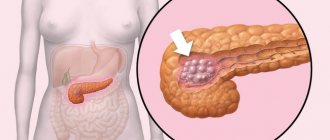Frequent awakenings at night is the most common sleep disorder problem that almost every person has encountered.
Sleep disturbances indicate the onset of some pathological process associated with the higher nervous system. Therefore, we recommend that you contact a specialist for help as soon as possible. Complications of such conditions can be the development of mental disorders such as depression, anxiety disorders and others.
For more than 30 years, we have been helping people successfully get rid of various problems associated with both sleep disorders and other problems with the nervous system.
Come! We can help you!
About 8-15% constantly complain of some kind of sleep disturbance (waking up at night, drowsiness, etc.), and 9-11% use sedatives immediately before bed.
Frequent awakenings at night
Most often, a psychiatrist or neurologist is consulted with the problem of frequent awakenings at night. This condition may be associated with neurological, psychiatric, and general somatic diseases. In addition, insomnia is a constant companion for people who abuse alcohol, drugs and certain medications. Stressful conditions also play a significant role in the development of sleep disorders.
Frequent awakenings at night are not a terrible problem in themselves. The very attitude of people towards this is much worse. Often, people take night awakenings too seriously, and instead of continuing to sleep peacefully, they begin to frantically search for the cause of the sudden awakening, pushing sleep further and further. Meanwhile, the most competent tactic in this situation is ordinary relaxation, thanks to which a person enters a natural trance, characteristic of the initial phase of falling asleep. In this state, a person rests almost the same as during normal sleep.
Classification of sleep disorders
- Insomnia – difficulty falling asleep and staying asleep:
- Early awakenings;
- Difficulty falling asleep (difficulty falling asleep in the evening);
- Frequent awakenings at night
- Early awakenings.
- Hypersomnia – constant sleepiness during the day;
- Disruption of the usual sleep and wakefulness patterns;
- Parasomnias are functional disorders that are associated with sleep phases, sleep and the phenomenon of incomplete awakening:
- Sleepwalking (sleepwalking);
- Unexplained night terrors and disturbing dreams;
- Enuresis;
- Epileptic seizures at night;
- Other disorders.
Frequent awakenings at night
With this sleep disorder, a person wakes up earlier than planned, after which he can no longer fall asleep. Early awakenings are most typical for older people and people suffering from certain organic pathologies.
Waking up early significantly reduces nighttime sleep, leading to daytime sleepiness, decreased performance and a feeling of fatigue.
Frequent awakenings at night
Night awakenings are typical for anxious, impressionable and overly excited people. The basis of night awakenings is the continuation of the brain's processing of all emotional information that was received during the day. Because of this, sleep becomes shallow and easily interrupted.
During infancy, night awakenings are common. This is due to the fact that sleep phases in children change somewhat more often than in adults. Under normal conditions, this is not a problem for a child, so if he becomes lethargic, moody or sleepy, you should consult a neurologist.
Difficulty falling asleep
Problems falling asleep are constant companions of disruption of the rational mode of work and rest. For example, if a person constantly goes to bed at different times, sleeps less than 6-8 hours, and “gets enough sleep” during the day. Students and people with alternating day and night shifts at work are most susceptible to difficulty falling asleep. In addition to disruption of the routine, excessive fatigue also leads to problems falling asleep, due to which a person cannot relax for too long before going to bed.
Current problem
For most people, heartburn is simply an occasional discomfort. Approximately 20% of the population of highly developed countries experience it at least once a month.
But for the 6% of people who have a chronic form of heartburn known as gastroesophageal reflux disease (GERD), unresolved (untreated) symptoms can lead to various health complications. People with erosions in the lining of the esophagus due to acid reflux often do not realize the harm of GERD until they have advanced stages of the disease.
If you experience frequent or prolonged heartburn (twice a week on a regular basis), consult your doctor. Here are nine reasons why you shouldn't ignore the symptoms of gastroesophageal reflux disease.
Nightmarish and disturbing dreams
Nightmares belong to a separate group of sleep disorders. The dream may not be scary, but it may have a negative connotation, which leads to some weakness in the morning, a feeling of anxiety, and a depressed state. In addition, people often complain about deteriorating mental and physical well-being and a decrease in quality of life. Nightmares can have many causes, for example:
- Constant stress;
- Neurotic and mental disorders;
- Some diseases;
- Poor nutrition (fatty and spicy foods, overeating);
- Taking a number of medications;
- Alcohol and drug abuse.
Nightmares are much more common in young children than in adults. If children have episodic nightmares, then there is nothing to worry about, but if they continue day after day, then you should consult a pediatrician or neurologist as soon as possible.
In children, nightmares can be caused by:
- Stomach ache;
- Beginning of teething;
- Physiological discomfort;
- Organic diseases of the central nervous system;
- Strong negative emotions that accumulate throughout the day.
Constant daytime sleepiness
Drowsiness is a consequence of sleep disturbances and insomnia. In this case, the person experiences constant weakness, fatigue, an irresistible desire to sleep, occasional falling asleep during the day, and a significant decrease in performance.
How to overcome frequent awakenings at night and other types of insomnia
To restore normal sleep, you need to follow a few simple tips:
- It is necessary to ensure the optimal temperature in the bedroom, which should be between 18-20 °C;
- For normal sleep, silence and darkness are necessary, although some people find it much easier to fall asleep under the dim light of a night light or TV;
- It is advisable to take your last meal 2 hours before bedtime. You should avoid fatty and very spicy foods. It is not recommended to overeat immediately before bed;
- You should not plan important and urgent matters before going to bed;
- It is advisable to develop a suitable routine in order to go to bed strictly at a certain time;
- There is no need to “get enough sleep” during the day and on weekends;
- The total sleep time should be at least 6-8 hours, while excessive sleep also does not bring anything useful;
- An hour before bedtime, you should try to avoid working at the computer, watching TV and other activities that require mental and physical stress;
- To make it easier to fall asleep, you can take a pine bath before bed. A milk bath with honey will also work. The bath temperature should be warm, but not very hot or cool;
- Herbal tea with motherwort, valerian infusion and peony root have an excellent effect;
- Many people find it easier to fall asleep by reading books, listening to calm music and thinking about something pleasant.
If all this does not help, then you should immediately seek help from a specialist!
Night hunger: hormones and stress
Those who are familiar with diets first-hand know the bitter truth: you can’t force yourself to have breakfast in the morning, and the closer it gets to the evening, the more difficult it is not to eat. Thoughts of forbidden delicacies keep creeping into my head; many give up and go to the refrigerator under cover of darkness, berating themselves for their lack of willpower. However, according to a new study, special hormones that cause hunger and give signals of satiety may be to blame.
The study involved obese men and women (32 people). Half of the participants suffered from uncontrolled overeating. The study showed that the level of satiety hormones in the evening can decrease, and the level of hunger hormones can increase, and after stressful situations it becomes even higher. Scientists have found that overweight people tend to respond particularly strongly to changes in the levels of hormones that control appetite .
“In the evenings there are more opportunities to eat. The study shows that hormones determine nutrition, said Susan Carnell, a professor of psychiatry and behavioral sciences at Johns Hopkins University School of Medicine and the study's lead author. “It is not yet clear whether hormones determine nighttime overeating, or whether eating habits themselves dictate hormonal patterns.”
In any case, the circle is closed.
According to Kelly Costello Allison, director of the Center for Weight and Eating Disorders at the Perelman School of Medicine at the University of Pennsylvania, this study reminds us not to blame people for their weight problems .
“People who are overweight are treated with prejudice, told that it is their fault, that they are lazy or weak-willed,” Dr. Allison says. “In reality, people are just wired differently, and some things are very dependent on biological factors.”
The study appears in the December issue of the International Journal of Obesity. The study was based on earlier work, in particular, a 2013 study by scientists from Harvard University. People of normal weight took part in it. It was found that appetite is influenced by circadian rhythms. The peak of hunger is observed in the evening, and the weakest appetite is in the morning, although it would seem that the person has not eaten all night.
This work helped explain why many people skip breakfast.
According to Dr. Satchidananda Panda, a professor at the Salk Institute for Biological Research in San Diego, the phenomenon of evening hunger may have evolved to allow humans to go without food at night: “For millions of years, humans have not had the opportunity to eat at night. And in the morning, too, you couldn’t just get up and eat right away.” Today, food is everywhere, you don’t need to get it, you can eat at any time of the day or night. And now we are dealing with the reverse side of this evolutionary mechanism, because of which we lose control of ourselves and eat at night.
In the new study, participants were asked to eat nothing for eight hours and then eat a 600-calorie liquid meal.
Two hours after this, the scientists simulated a stressful situation in which participants had to plunge their non-dominant hand into ice water for two minutes, while the participants thought that they were being filmed (they were not filmed). Half an hour later they were offered pizza, small snacks and sweets.
To establish the effect of time of day on appetite, the entire procedure was repeated twice: starting at 9:00 and from 16:00. Blood samples were taken from the subjects and hormone levels were measured. They were also asked to rate their feelings of hunger and satiety on a scale with numbers.
All participants said that they felt hungrier in the evening than in the morning. Levels of ghrelin, a hormone that causes hunger, were higher in the evening, and levels of the satiety hormone, peptide YY, were lower than in the morning.
In those suffering from uncontrolled overeating, the initial level of ghrelin (before the described manipulations) in the evening turned out to be higher compared to morning tests, while in those who did not suffer from overeating, this was not observed.
Overeaters reported that in the evening, after eating liquid food and a stressful situation, the feeling of fullness was weaker.
Stress increased hunger in all participants , but ghrelin levels increased significantly if the stressful situation occurred in the afternoon, suggesting that stress has a stronger effect on hunger in the evening. (However, the study did not have a comparison group whose participants were not exposed to stress.)
“We do know that this pattern of hormonal responses increases the risk of overeating in the evening compared to the morning,” Dr. Carnell says. “It turns out that study participants were more susceptible to this danger.”
Dr. Ellison and others note that hormone levels are linked to eating patterns, so it is likely that when eating behavior changes, hormonal activity will also change . But even if this is true, there is a lot of work to be done, because first you need to change your eating habits and wait for your hormones to respond, says Courtney Peterson, an assistant professor in the department of nutrition at the University of Alabama.
“I won’t say there’s no hope of helping these people, but obviously everyone’s starting point is different,” Dr. Ellison says. Due to biological factors, some have a more difficult time.”
What is the conclusion? Blame it all on the “hungry hormone” and give up? The specialists of our Center offer another solution - to learn to control your emotional state (for example, in our emotional regulation groups), then stress will no longer work on the nightly production of ghrelin, and gradually the hormonal levels will begin to return to normal. We also recommend developing an individual nutrition plan and ensuring you eat evenly throughout the day so as not to suddenly find yourself hungry in the evening.
Based on materials from https://www.nytimes.com/2018/01/30/well/eat/binge-eating-at-night-your-hormones-may-be-to-blame.html
Translation - Marina Nestrugina, Center for Intuitive Eating IntuEat ©
Similar articles:
How to distinguish physiological hunger from emotional hunger
Evening hunger with intuitive eating
Night eating syndrome
Treatment of nightmares
In the vast majority of cases, disturbing and nightmare dreams do not require any additional treatment, since they are just a reflection of everyday emotions. However, if nightmares begin to affect mood, reduce performance, or change the usual lifestyle, then drug treatment, which is carried out with the help of antidepressants, tranquilizers, anticolvulsants, as well as psychotherapy, is acceptable. Under no circumstances should you take medications without the recommendation of your doctor! The Preobrazhenie Clinic has been treating problems associated with sleep disturbances and frequent night awakenings for several decades. First, the patient undergoes a sleep study, which determines the form of insomnia. After this, a qualified specialist selects the medications necessary to restore sleep and provides training in self-relaxation methods.
The clinic is open 24 hours a day, seven days a week.
Breathing problems
If stomach acid accidentally flows into the windpipe after gastroesophageal reflux disease causes it to enter the esophagus, GERD can worsen asthma or pneumonia. Even without lung problems, GERD can cause shortness of breath and difficulty breathing. And treatment in this situation can be a double-edged sword. Because GERD medications, such as proton pump inhibitors, may actually increase the risk of pneumonia. (They can promote bacterial growth and suppress coughing, which is designed to help clear the lungs.)
Pay your doctor's attention to your lung function when treating reflux.









